Fast fashion books: Learn the truth behind brands like Boohoo
Garment workers in Leicester's factories have been found to be paid as little as £3.50 per hour and forced to work, even when they've shown signs of coronavirus, while conditions in other countries are terrifying. As consumers, it’s time to rethink and help bring about change
Eva Waite-Taylor THE INDEPENDENT JULY 8,2020

Globally, people consume in excess of 100 billion pieces of clothing a year. ( iStock/The Independent )
The affordability of clothing coupled with #ootd culture leads many of us to think we need a new outfit whenever we leave our homes. And when it comes to fast fashion, we all plead guilty to it one way or another – either by buying Zara’s polka dot dress last summer or copping Mango's Bottega Veneta inspired clutch bag.
The thrill we get after finding a cheap dress or dupe of a designer piece is undeniably problematic. And we needn’t look far to know that the price tag of many of our fashion buys frequently does not reflect the item's true cost.
The ethical and environmental issues surrounding the fashion industry are no secret and have been brought to light in the past few years, namely after the Rana Plaza garment factory collapse in Bangladesh in 2013. Around a third of the 3,122 workers died and the devastation also revealed the horrendous conditions many garment workers are forced to work in.
According to a recent McKinsey report, globally, people consume in excess of 100 billion pieces of clothing a year. And the textile industry is said to be the second biggest polluters, and responsible for 92 million tonnes of waste annually. Fast fashion is causing indisputable environmental implications, but the problems don’t stop there.
On a social level, garment workers remain mired in poverty because of the fast fashion business model to churn out fresh cheap lines of clothing at a frightening rate.
Take for example online retailer Boohoo. At the beginning of the coronavirus crisis, many brands grappled to make sense of how they would survive, Boohoo however seemed to have it nailed. Producing new lockdown inspired lines at lightning speed.
But a recent investigation has revealed the poor working condition in its Leicester based factories, with workers expected to be paid as little as £3.50 an hour, despite Britain’s minimum wage being £8.72 for those aged over 25.
Read more
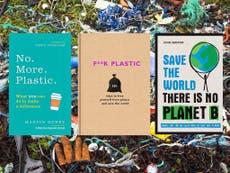
9 best plastic-free living books
'How to Break Up with Fast Fashion' by Lauren Bravo, published by Headline Publishing Group: £10.65, WHSmith
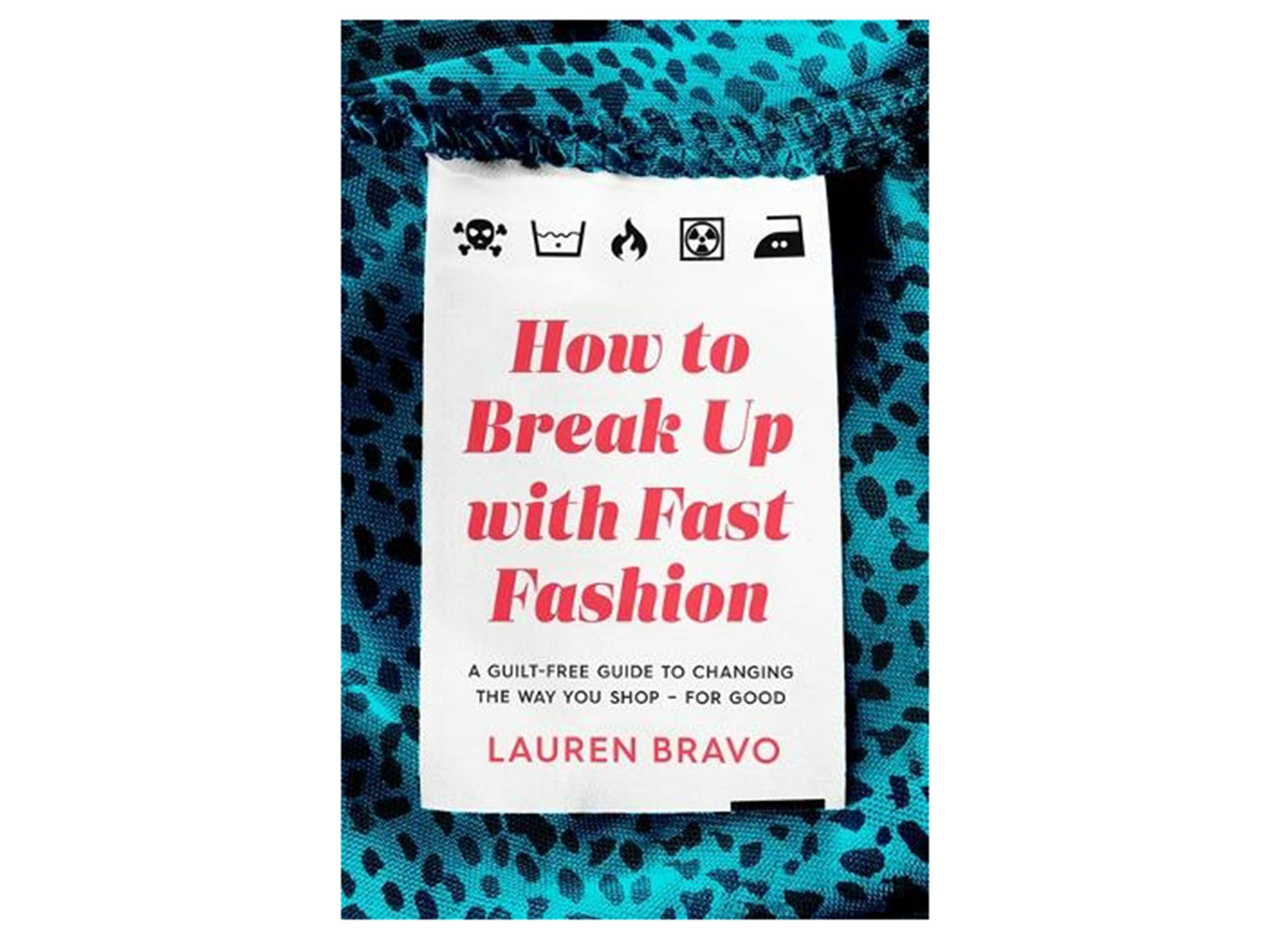
This book does exactly what it says on the tin: help you be rid of fast fashion once and for all. A guilt-free guide that will change the way you think about clothing for the better. It will inspire you to repair, recycle, and spruce up old items, as well as embrace more sustainable habits when it comes to shopping.
'Slave to Fashion' by Safia Minney, published by New Internationalist Ltd: £13.99, Waterstones
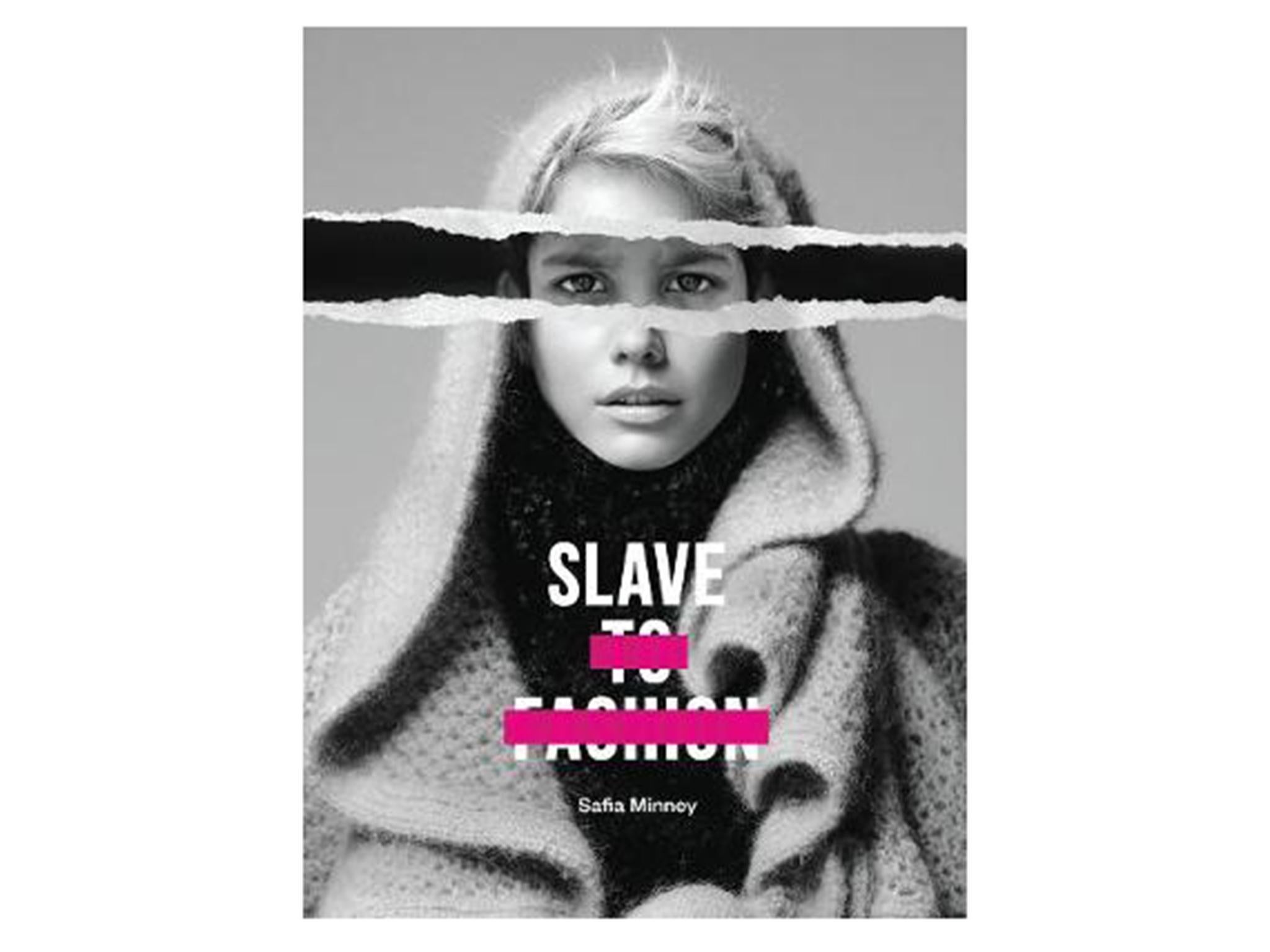
Made up of interviews and micro-documentaries with men, women, and children caught in slavery making clothes for high street brands, this book offers sobering truths and stark realities of the textile industry. While Slave to Fashion does a brilliant job of highlighting the terrible reality of millions of garment workers, it also offers hope of a fairer, more ethical world. lt provides helpful tools on how we should navigate the challenging and difficult fashion world, while also highlighting what governments and businesses should do to call time on this unnecessary suffering.
'Fashionopolis: The Price of Fast Fashion and the Future of Clothes' by Dana Thomas, published by Apollo: £7.99, Amazon
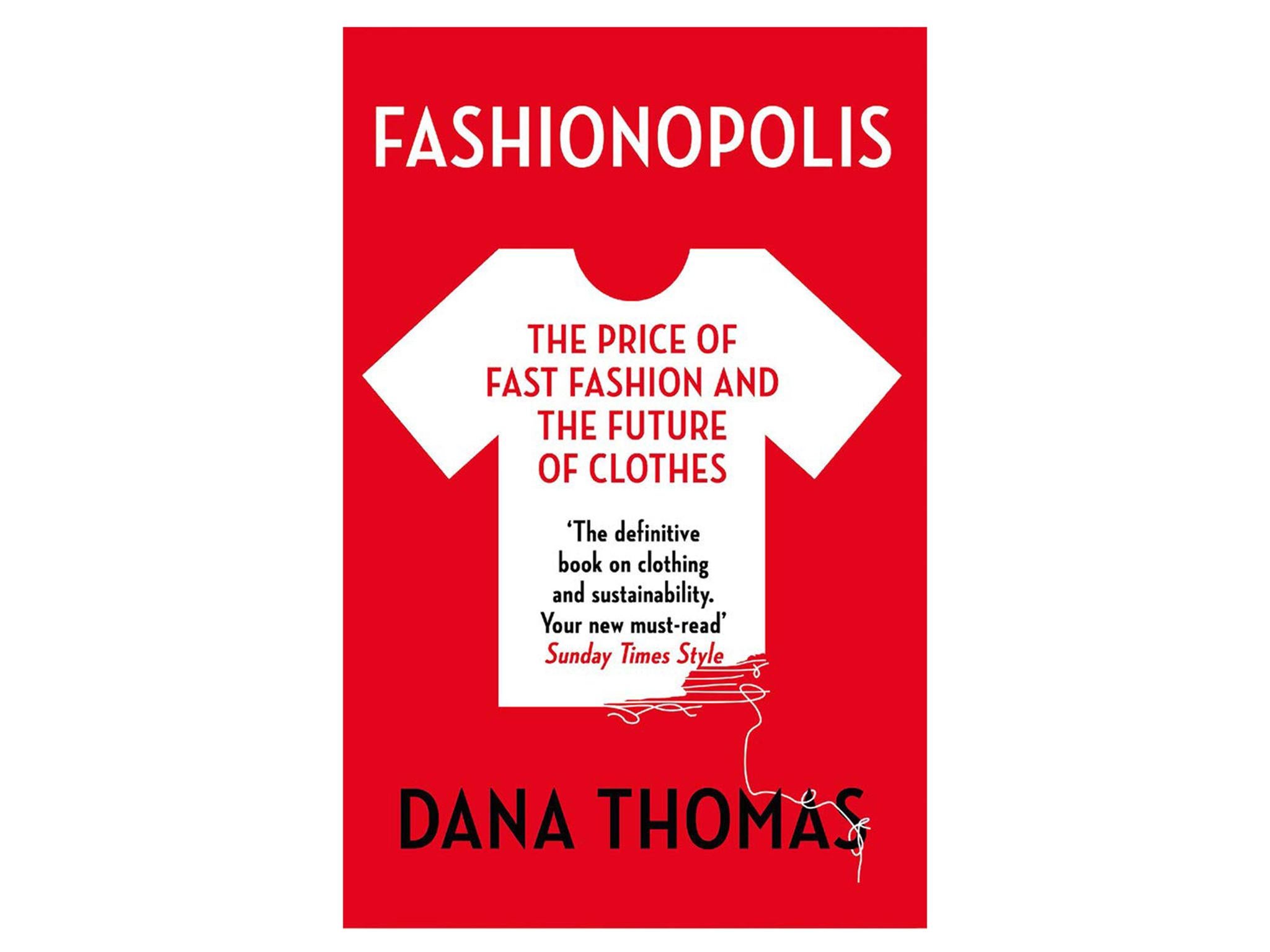
Author and journalist Dana Thomas travelled the globe to seek the answers to what we must do about the social and environmental impacts of the fashion industry. As such, the book offers a blueprint for how we must proceed if we are to have a more sustainable future. Filled with eye-opening facts, Fashionopolis exposes the fashion world's toxicity one page at a time.
'To Die For: Is Fashion Wearing Out the World?' by Lucy Siegle, published by Fourth Estate: £10.65, Amazon
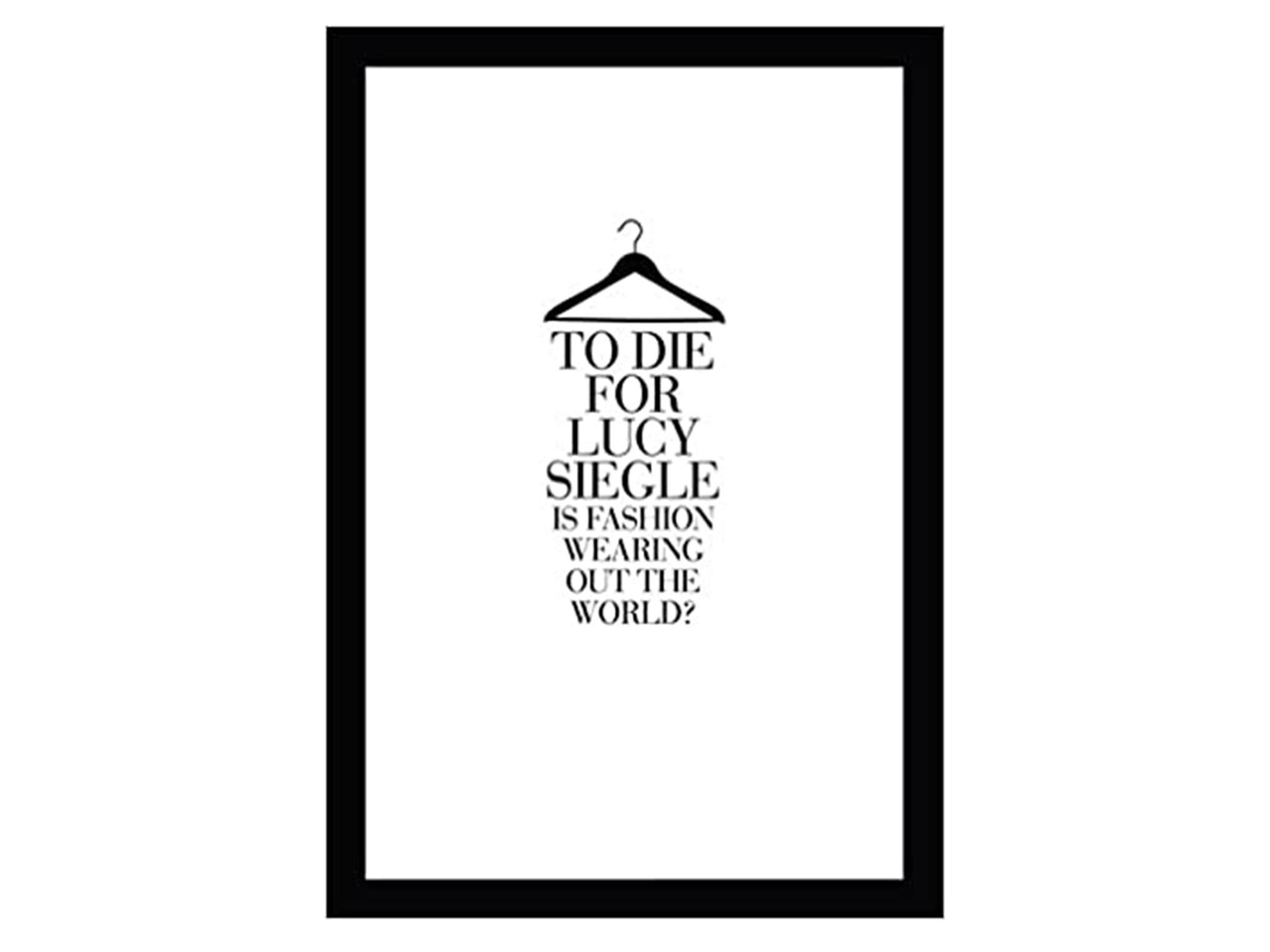
Revealing the inhumane and environmental stories behind the clothes we buy and wear, To Die For is a chilling exposé into the industry. Included within the book are Siegel's conversations with Cambodian garment workers, visits to Bangladesh factories, and the forced teen labour in Uzbekistan. This is a must-read for all.
'The Conscious Closet: The Revolutionary Guide to Looking Good While Doing Good' by Elizabeth L. Cline, published by Plume: £10.59, Blackwell's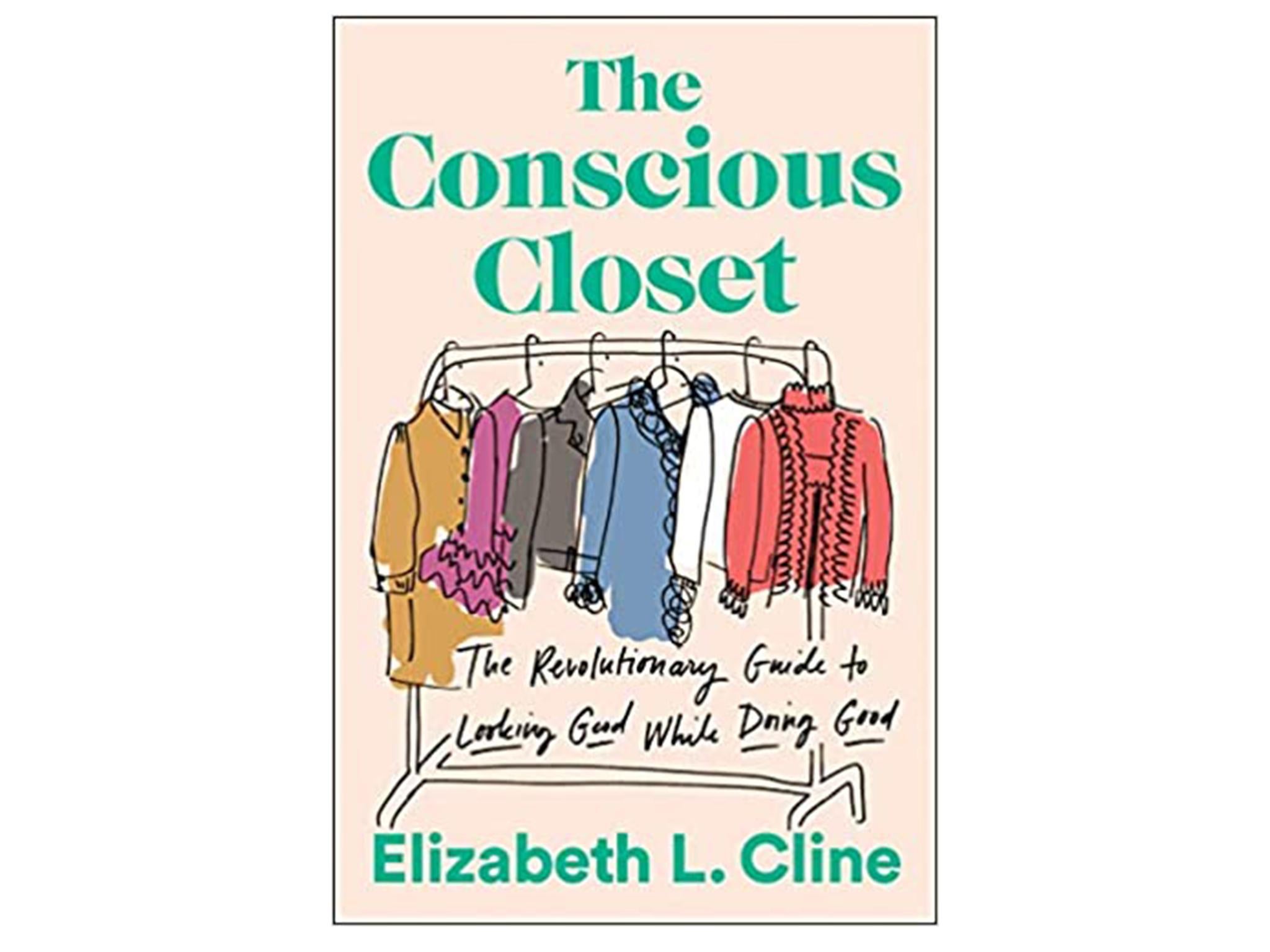
Journalist and clothing resale expert, Elizabeth L. Cline brings you your definitive guide to building a more ethical and sustainable wardrobe you will love. It begins with guiding you through a sustainable wardrobe clear out, all the way through to how you can mend your clothes. Not just a style guide, The Conscious Closet is also a call to action to transform how we think about clothes.
11 best sustainable kids’ clothing brands you need to know
Labour Behind the Label, garment workers’ rights group, made separate claims in its latest report – stating that those working in the Leicester-based factories that supply to the fast fashion giant were “forced to come into work while sick with Covid-19”.
This news comes after the Environmental Audit Committee (EAC) put forward several recommendations in its Fixing Fashion: Clothing consumption and sustainability report, which the government rejected. Points of note include the concerns of child labour, prison labour, and force labour.
Further afield, in countries such as Bangladesh and Cambodia, it is no secret that garment workers face unsafe conditions, with many brands turning a blind eye to the illegal subcontracting and allowing forced and unpaid overtime. And for there to be any meaningful change, the solution is rather simple, brands must pay garment workers a living wage – yet seem to continually ignore the calls for action.
What’s worse, when the pandemic hit, and spending nosedived, many brands faced changes in levels of demand, causing retailers – including Arcadia and New Look – to cancel orders to the tune of £2.5bn.
Bangladesh was hit hard by this. With garment manufacturing accounting for 84 per cent of the country’s overall exports, it left workers without an income and in destitution. In response, Lock Stock launched – a scheme bridging the gap between garment workers and wasted clothes. Delivering mystery boxes of clothes (costing £35) from a range of high-street brands for half the cost of the normal retail price.
While this was a positive move at a time when workers were under sheer desperation, this simply is not enough, and the fast fashion industry must wake up to its inequalities. This is not to say brands should relocate garment work, since countries rely heavily on it as a source of income. Instead, the big companies need to take more responsibility for change to happen.
As consumers, it’s time to rethink and help bring about change. Ways to do this include joining the #PayUp movement – a campaign demanding that brands pay for completed and in-progress orders, and support Fashion Revolution, Labour Behind The Label, and Fair Wear.
To help you further, we've compiled a round-up of the books that will help you learn the truth behind the fast fashion industry. After all, knowledge is power.
You can trust our independent round-ups. We may earn commission from some of the retailers, but we never allow this to influence selections. This revenue helps us to fund journalism across The Independent.
Labour Behind the Label, garment workers’ rights group, made separate claims in its latest report – stating that those working in the Leicester-based factories that supply to the fast fashion giant were “forced to come into work while sick with Covid-19”.
This news comes after the Environmental Audit Committee (EAC) put forward several recommendations in its Fixing Fashion: Clothing consumption and sustainability report, which the government rejected. Points of note include the concerns of child labour, prison labour, and force labour.
Further afield, in countries such as Bangladesh and Cambodia, it is no secret that garment workers face unsafe conditions, with many brands turning a blind eye to the illegal subcontracting and allowing forced and unpaid overtime. And for there to be any meaningful change, the solution is rather simple, brands must pay garment workers a living wage – yet seem to continually ignore the calls for action.
What’s worse, when the pandemic hit, and spending nosedived, many brands faced changes in levels of demand, causing retailers – including Arcadia and New Look – to cancel orders to the tune of £2.5bn.
Bangladesh was hit hard by this. With garment manufacturing accounting for 84 per cent of the country’s overall exports, it left workers without an income and in destitution. In response, Lock Stock launched – a scheme bridging the gap between garment workers and wasted clothes. Delivering mystery boxes of clothes (costing £35) from a range of high-street brands for half the cost of the normal retail price.
While this was a positive move at a time when workers were under sheer desperation, this simply is not enough, and the fast fashion industry must wake up to its inequalities. This is not to say brands should relocate garment work, since countries rely heavily on it as a source of income. Instead, the big companies need to take more responsibility for change to happen.
As consumers, it’s time to rethink and help bring about change. Ways to do this include joining the #PayUp movement – a campaign demanding that brands pay for completed and in-progress orders, and support Fashion Revolution, Labour Behind The Label, and Fair Wear.
To help you further, we've compiled a round-up of the books that will help you learn the truth behind the fast fashion industry. After all, knowledge is power.
You can trust our independent round-ups. We may earn commission from some of the retailers, but we never allow this to influence selections. This revenue helps us to fund journalism across The Independent.
'How to Break Up with Fast Fashion' by Lauren Bravo, published by Headline Publishing Group: £10.65, WHSmith

This book does exactly what it says on the tin: help you be rid of fast fashion once and for all. A guilt-free guide that will change the way you think about clothing for the better. It will inspire you to repair, recycle, and spruce up old items, as well as embrace more sustainable habits when it comes to shopping.
'Slave to Fashion' by Safia Minney, published by New Internationalist Ltd: £13.99, Waterstones

Made up of interviews and micro-documentaries with men, women, and children caught in slavery making clothes for high street brands, this book offers sobering truths and stark realities of the textile industry. While Slave to Fashion does a brilliant job of highlighting the terrible reality of millions of garment workers, it also offers hope of a fairer, more ethical world. lt provides helpful tools on how we should navigate the challenging and difficult fashion world, while also highlighting what governments and businesses should do to call time on this unnecessary suffering.
'Fashionopolis: The Price of Fast Fashion and the Future of Clothes' by Dana Thomas, published by Apollo: £7.99, Amazon

Author and journalist Dana Thomas travelled the globe to seek the answers to what we must do about the social and environmental impacts of the fashion industry. As such, the book offers a blueprint for how we must proceed if we are to have a more sustainable future. Filled with eye-opening facts, Fashionopolis exposes the fashion world's toxicity one page at a time.
'To Die For: Is Fashion Wearing Out the World?' by Lucy Siegle, published by Fourth Estate: £10.65, Amazon

Revealing the inhumane and environmental stories behind the clothes we buy and wear, To Die For is a chilling exposé into the industry. Included within the book are Siegel's conversations with Cambodian garment workers, visits to Bangladesh factories, and the forced teen labour in Uzbekistan. This is a must-read for all.
'The Conscious Closet: The Revolutionary Guide to Looking Good While Doing Good' by Elizabeth L. Cline, published by Plume: £10.59, Blackwell's

Journalist and clothing resale expert, Elizabeth L. Cline brings you your definitive guide to building a more ethical and sustainable wardrobe you will love. It begins with guiding you through a sustainable wardrobe clear out, all the way through to how you can mend your clothes. Not just a style guide, The Conscious Closet is also a call to action to transform how we think about clothes.
No comments:
Post a Comment